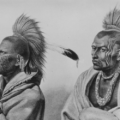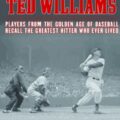Burton Raffel: Transformation Artist

Burton Raffel was one of the most significant, innovative, controversial and wide-ranging translators of poetry and prose during the second half of the 20th century. Perhaps best-known for his widely-read version of Beowulf in the 1960s, he published scores of translations from (among other languages) the Indonesian, French, Spanish, Russian, Vietnamese, and Old English, all of them rendered in colloquial American English of impeccable grace and vividness. After retiring from teaching, toward the end of his life, he translated the complete Divine Comedy, “updated” Chaucer’s Canterbury Tales and collaborated with Harold Bloom on annotated versions of fourteen Shakespeare plays, while also writing books of poetry and fiction, editing significant anthologies, and producing academic texts on a variety of literary subjects and figures.
When it came to translation, his scholarship and energy were matched only by his insatiable ambition to tackle—and transform—the definitive texts of the Western canon as well as much of world literature. His deftly-trained poet’s ear allowed him to render foreign texts into living English. While some more academically-oriented translators scoffed at his versions for inaccuracies and for pandering to a general audience, Raffel’s goal—to open the field of literature to all readers, young and old, educated or not—was achieved with remarkable aplomb. Many of his translations are standard texts, used in classrooms around the world, even fifty years after they were published.
Trained as an attorney but educated in large part by his own deep reading, Raffel combined the skills of lawyerly argument and analysis with the passionate convictions of the autodidact. In this, he was a bit like Pound, though, unlike Pound, he was not a Fascist or a snob. For his whole adult life, he strove mightily in the service of literature’s vital and unique ability to make human beings real to themselves. He believed the experience of great writing was a privilege all humans should possess. His contribution to American literature is immense—and largely unrecognized.
Raffel’s primary aspiration, I believe, was to be a recognized poet, and though his poems appeared widely in national journals as well as in a number of books and chapbooks, composing poetry was not where his deepest gifts lay—despite the depth of his knowledge, talents, and ache.
Though as a critic he knew how to burn the fool’s gold from the true, something in his personality kept him from realizing—and applying—his poetic aspirations into language that matched his linguistic talents. The divide—really a chasm—between the verse-quality of his translations and that of his own work is enormous. Perhaps he was too “smart,” too self-analytical, too intentional, to abandon himself to the non-meaning that is the only sure path to revelation in poetry. Perhaps he couldn’t trust the art itself to lead him forward.
Whatever the reasons for his modest achievement in poetry—and, for that matter, in fiction—he is indisputably great in that tremendously difficult and undervalued art of translation. He was also a dedicated and highly original teacher, certainly the single strongest teacher—and mentor—I have ever had.
In August of 1976, having spent a post-college year living with friends in Manhattan, working as a runner on Wall Street, smoking too many cigarettes and too much pot, drinking too much wine and simply hanging out, I packed my belongings in a run-down station wagon and headed to Denver with the promise of a teaching assistantship in the University of Denver’s graduate creative writing program.
Disheveled and unsure of myself and my life’s direction, I had hardly considered what I was getting into. I only knew I wanted to “be a poet,” to deepen and engage whatever talents I might have. I liked to think of myself—romantically—as an apprentice craftsman. Having studied for a year with Anselm Hollo, I had certain skills and inclinations, and I loved both the hard work and the idea of poetry as a vocation, a way of life. I was hungry to define myself, and to embark on whatever adventures unfolded.
That first semester was a challenging, invigorating adjustment. John Williams, author of the then-neglected but now widely-respected novel Stoner, was the presiding sage of the program, having started it some 20 years earlier. He was also editor of a beautiful if controversial anthology of Renaissance lyrics, whose poets in fact served as his central model of excellence in verse. The year previous to my arrival, he had shared the National Book Award—with John Barth—for his now-forgotten novel Augustus. With his dapper blazer and ascot, his constant cigarette and alarming smoker’s cough, and with the sonorous voice through which he intoned the poems he admired, he was a colorful, charismatic and daunting figure, despite his diminutive stature.
A strict formalist, he distained Eliot’s poetry, and he scorned Pound as a vastly-overrated poseur. He had little admiration for Robert Lowell, to say nothing of Ginsberg, the other Beat poets or any of the so-called avant-garde writers then challenging the status-quo. Instead he admired EA Robinson, Thomas Hardy, and those aforementioned Renaissance lyricists, as well as Frost and Williams and a tiny coterie of others whom he considered admirable for their craft and appropriately austere thinking. Of the Modernists, he admired Marianne Moore, though only Stevens earned his full admiration, especially the Stevens of “Sunday Morning,” which he held to be the definitive poem of the age, far stronger than “The Wasteland” or The Cantos. He considered Auden’s The Dyer’s Hand a great book, essential reading for any younger poet.
In his seminars, Williams laid-out fascinating and deftly-argued apologies for what he saw as the truest canon of literature in English, clear-eyed value-systems supporting his aesthetic judgments. Many of my fellow poets in the creative writing program rejected his positions outright, though they mostly shied away from arguing with the master. I, however, was charmed—I mean literally so. Although I never adopted Williams’ aesthetics, and eventually came to see them as reductionist, still, the music of Robinson’s “Eros Turranos,” Hardy’s “The Darkling Thrush,” Bogan’s “The Dream,” and such Renaissance lyrics as Ben Jonson’s “To My First Son” made my eyes water in recognition of something deeper within me than ordinary language could plumb, a primal depth that few free-verse poems could fathom.
I think it was in the winter semester of that first year in Denver—1977—that I took Burton Raffel’s poetry workshop. In his background, personality, and approach to poetry—in fact in his entire demeanor—he was the polar opposite of Williams and of Williams’ protégés, who were the presiding aesthetic arbiters in the creative writing program at the time.
A Jewish Brooklynite, Burton moved and talked with an intensity that could be intimidating and was rarely if ever held in check for protocol or manners. He declaimed passionately and with self-proclaimed authority about anything and everything, even as he wandered from the English Department offices to our classroom across campus. Bald and dressed plainly in rumpled suit pants and dress shirt open at the collar, he nevertheless exuded physical confidence and vigor. His classes felt to me like open-ended explorations conducted by a master improviser. He moved from personal anecdote to discussion of the art of translation, to declamations on classical music, jazz and rock—music of all kinds—to the student poems at hand, about which he was unerringly insightful, merciless and sometimes even cruel. He was prodigious in his reading and enthusiasms and full of opinions on everyone from Milton to Rod Stewart.
Sitting in class, one had to stay alert intellectually, emotionally, and even physically. Unlike Williams, he honored little decorum but his own, often embarrassing and sometimes even humiliating his students in critique. I listened in fascination and with trepidation that he would train his exegesis on me—not just on my poems but on what they revealed about me. I left every class trembling, teeming with energy, hungry to read whomever Burton had declaimed on—and to write out of parts of myself I’d never before dared fathom.
I well remember Burton’s scathing critique of an older woman’s poems—older than we were, probably in her mid-thirties then—the wife of a professor on the music faculty and a locally-acclaimed poet—who stood up, knocking her desk-chair over, and threw her books at him, crying that others far more accomplished than he was had loved the very poems he’d just savaged. I think she may even have complained to the department chair, and perhaps even to the dean. It was a minor scandal, leading to some unsettling gossip.
The fact that Burton may have been correct in his assessment of her work was not lost on those of us who’d listened to what he’d said. Still, such cruelty was needless and seemed to come out of some reservoir of resentment outside the proper bounds of assessment, to say nothing of the conventions dictating appropriate classroom behavior.
When Burton turned to my work, I listened carefully, only a little humiliated. The wounds I licked later turned out to be mere scratches.
Burton Raffel admired a wider range of poetries than did either John Williams or my earlier teacher, Anselm Hollo. If, like them, he insisted on being moved by poetry, what moved him was not primarily felicities of form or insight—aesthetic values Williams and Hollo shared, despite their vast differences otherwise. Burton wanted to be touched deeply, changed in some way—not just intellectually but in some core of his being. In his way, he was a deeply spiritual poet, teacher, and man, profoundly inspired by the Jewish textual and belief traditions. The starched-shirt intellectual Puritanism of late New Criticism was his bane, whether it showed up in a poem’s prosody, imagery or content—or in academic discourse.
Unlike Williams or Hollo, he identified with no schools. Like them, though, he was scathing in his response to anything that smacked of sentimentality or cant, and he mocked florid language unmercifully. We poets had to read the whole range of great and good writers, he told us, and then forget what we’d read as we went into the dirt of our own truest, unspoken and even unspeakable selves. We needed to confront the pain that defined us at our cores.
The music of true poetry was never decorous or ornamented but rather an integral function of the poem itself, essential to its unfolding. For this reason among many others, self-consciously metrical poetry was empty by design, impossible to “fix” in revision. Poetry required one’s full being; it could neither be written by the head nor the heart exclusively, but only by a binding of the two, and only by traveling to a place outside mere thinking. Poetry required an angle of vision on oneself that brought the mind and the animal body together with some other quality, something like urgency, or need, some quality deep in the poet that was unique and hungry and grieving.
“Smart” people rarely wrote real poetry, Burton told me one evening, standing in the parking lot, long after class had ended. He’d also told me I had real talent. OK, I thought. Thank god I’m not that smart.
Most writing, Burton contended, was executed merely to “keep the engine running,” to assure the poet that s/he was (still) indeed a poet. As one gained confidence and facility, he said, poems often looked and sounded excellent—refined versions of what the poet had been working toward, clean and well-balanced and easy to digest. This kind of poem was the great danger of workshops in general and of the “workshop-poet” in particular: that the young poet would learn to write well-made poems that explored no appropriately difficult territory, or would merely repeat what had been previously accomplished. These were often the poems that came to define—and deaden—many otherwise fine poets; these were the poems that often won the prizes that garnered worldly acclaim. These were the poems that could ruin us all—poems that broke nothing and hurt no one, least of all the poet himself.
At the end of that first semester, Burton told me that though my work was infantile and precious, I had the “phrase-making ability” which was essential to any real poet and a quality that couldn’t be learned. He told me I should feel free to show him more of my work. That was 1977. From that moment on for the next quarter century, Burton Raffel read and critiqued virtually everything I wrote, always commenting extensively and minutely and always holding me to the highest standards—higher standards, in many cases, than I would have held myself.
When I’d finished my classes and was working on my thesis, I sat in occasionally on writing workshops, mainly to maintain ties with the writing community at the university. In one of these I met a young woman, a poet, whose work and personality intrigued me. Her name was Carol Dragone, and we soon fell into a complicated relationship built around poetry and a love of the outdoors. Her background was complicated and always a bit unclear to me. She had graduated from University of Pennsylvania the year before. Feisty, self-reliant, opinionated and loud, she was funny and fun to be with and she knew how to stand up for what she believed, in poetry, politics—all aspects of life and art.
Carol and I spent a lot of time together, walking and riding bikes, always talking about poetry and art, family and the best ways to live one’s life as an “artist.” We both had firm beliefs, and we often disagreed, though our disagreements were most often leavened and diffused by her humor. When she rented an apartment in the Capitol Hill neighborhood, I moved in—part time—with her, keeping my own small place, in part because she still had feelings for her former boyfriend and couldn’t commit fully to our relationship. She asked that I give her time. When that boyfriend came to visit for a week, I stayed away, brooding and pretending to be perfectly fine.
Carol had also started showing her poetry to Burton, who encouraged her. He grew enthusiastic about her promise as he saw her moving toward the surrealist-influenced approach I also took in those days.
One Sunday afternoon in January, while I was at work, Carol was electrocuted when a hairdryer fell into the bathtub while she was bathing. When I came home—without a key—to find the apartment locked, I asked the super to open it. He refused since the apartment had been rented in her name. So I went across the street to a friend’s apartment and we called friends, hospitals, police—to no avail. When I begged the super next morning to open her door, he did so—though he still wouldn’t let me in.
While I sat in a patrol car being gently questioned by the police, a hearse arrived, and I watched from the front of that squad car as she was carried out on a stretcher and driven away.
During the darkest days of that experience, Burton supported me with great love and insight. He helped me see my way through confusion, into grief, and through my grief into whatever clarity of mind and heart lay beyond. I remember sitting in his book-packed living room, sipping his “special” vodka, while he insisted—gently but emphatically—that I was blameless, that I didn’t have to even answer Carol’s mother’s hysterical letters, and that Carol’s life and poetry had in fact been enriched by our relationship.
I had many good friends who shared my grief and helped a great deal, but it was Burton who provided the loving counsel I needed then. And then, when I started writing what might be construed as “poetry” again, he dug into his critiques with the same passion and rigor with which he always honored my work.
Six months later, when I met my future wife Colleen, Burton let me know he was overjoyed, but also warned that things might be difficult at first, precisely because I felt so deeply toward her. When I showed him the (inevitable) sentimental love poems, he told me to grapple with what I was really feeling, which was a complicated and painful mix of emotions: my love for Colleen brought forth a resurgence of the grief I had buried, which caused me at first to be destructive to this precious new relationship. Burton prodded me to write from that place, and was unmerciful when I indulged in padded romantic tripe.
Luckily for me, Colleen stayed with me during our difficult early months. A year or so later, we were married in a beautiful outdoor wedding in the Colorado foothills, and—inexplicably to all our friends and family—moved to rural northern Florida.
As soon as we moved, and without ever stopping to comprehend what I was asking of him, I would mail a handful of poems to Burton, who would then edit and comment—extensively—and send them back. And as soon as I got a letter from him, I would put another batch of poems in the mail. His comments were always exacting and blunt: he’d cross out entire passages with “dreck!” or “spare me!” scrawled in the margin, or he’d mock me (I could take it) with “how-de-do, Mr. Keats!” or some such near-insult. But when he liked something—a passage or a poem—he’d enthuse so vigorously and articulately I’d spend the day humming.
Occasionally he’d write a full letter or enclose some of his own work, but most often he’d just send back my scribbled-on poems with a note.
He read the poems I wrote when, after a year in Florida, we moved to Vermont; and when Colleen and I decided to have our first baby at home, he wrote passionately against it—there was too great a chance, he said, that something might go wrong.
And when our baby died, again he offered his love and guidance.
A year or so afterwards, after he’d left Denver to take a Distinguished Professorship at Southwest Louisiana State University, Burton solicited my poems for The Literary Review, where he served as an advisory editor. And when he edited a wonderful introduction to poetry, How to Read a Poem, he generously included—and wrote extensively about—my work. He praised my first few books in reviews for The Literary Review and other journals, and he blurbed other books of mine enthusiastically—in short he did everything in his power to support the worldly and artistic success of my writing.
Burton continued to critique the poems I sent him, though over time, I think he felt that I’d taken a direction toward a certain softness of cadence and engagement. He saw me as not-quite fulfilling the promise he’d envisioned. By the time email came into general use, our weekly letters had ended. I didn’t send him some of my later books—in part because I sensed he would be disappointed in them, and that he might tell me so.
Thus twenty-five years of mentorship came to its natural end. And when he died, at age 88, Burton and I hadn’t communicated in years. When I think of the many gifts he gave me over many years and realize that these gifts have been central to my being as a poet and a person, I feel a gratitude that plumbs and disturbs the muck at the bottom of whoever I am, and wakes the strange, vivid creatures living there. My one regret now is that I never properly thanked him.
About Michael Hettich
Michael Hettich has published a dozen books of poetry, most recently To Start an Orchard (Press 53, 2019). A new book, The Mica Mine, is forthcoming. His work has appeared in many journals and in a number of anthologies as well. He lives in Black Mountain, NC. His website is michaelhettich.com.





